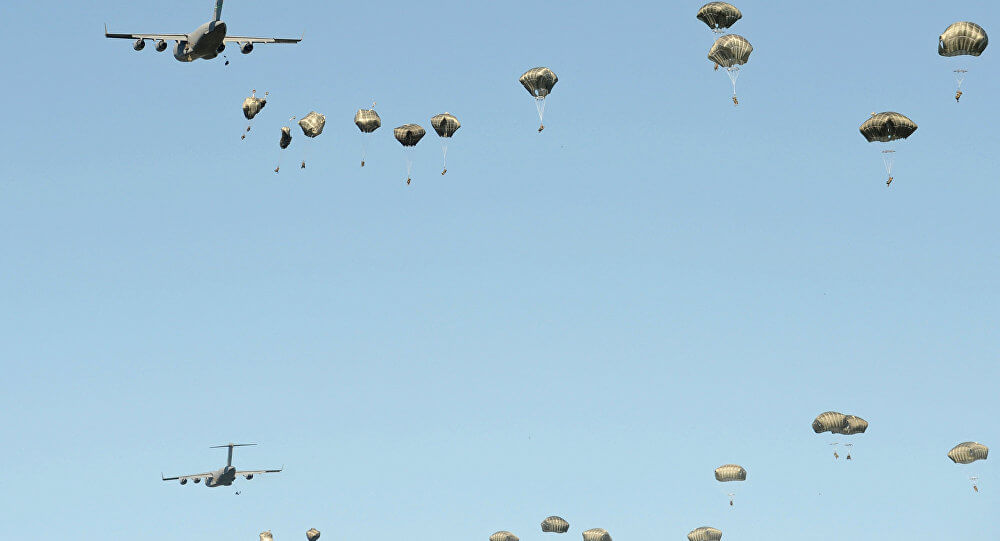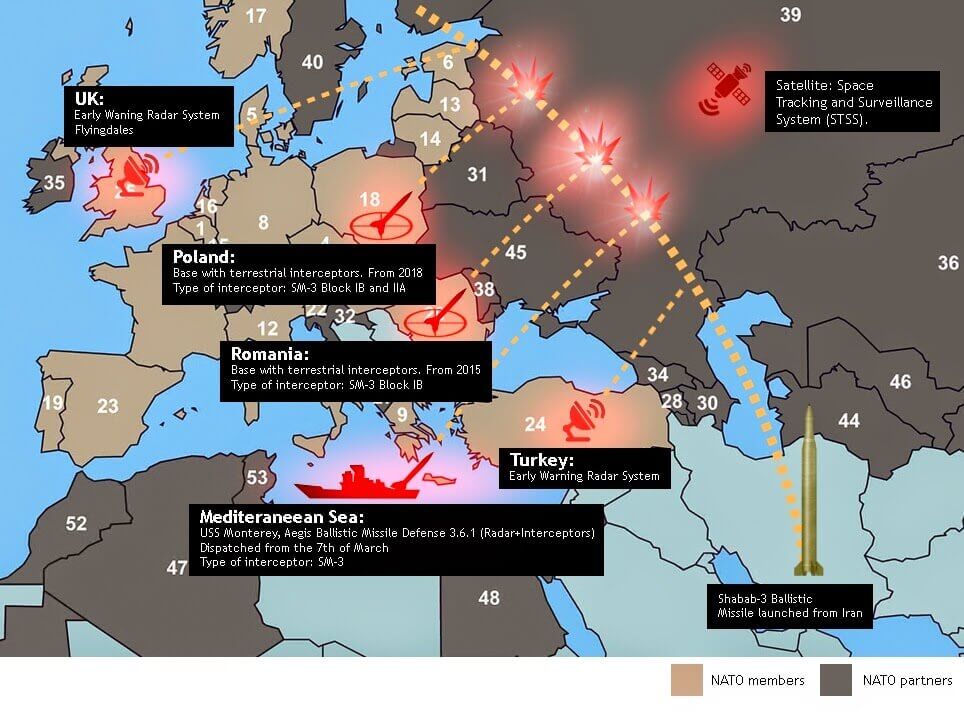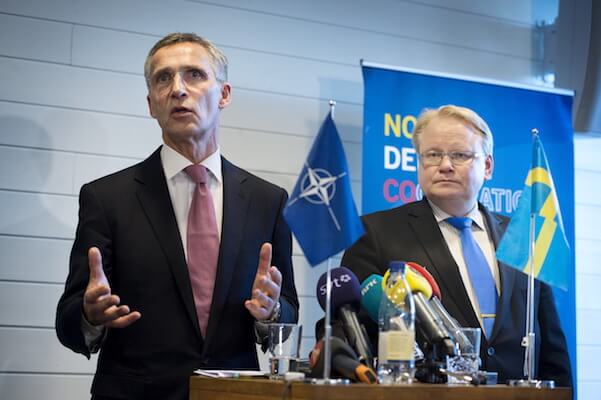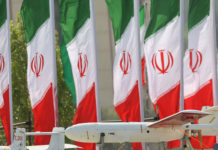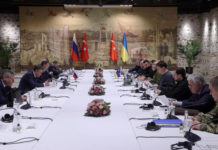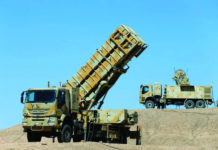“I Don’t Need A War In The Black Sea” – Another NATO Member Folds As Bulgaria Refuses To Join Naval Task Force
Days after it was revealed that the US had dispatched the destroyer USS Porter to the Black Sea, in what the US Navy said was “a series of drills with allies and forces of partner nations in what the United States called a routine deployment”, Russia responded that Moscow would respond with “unspecified measures”, adding that this and other US deployments were designed to ratchet up tensions ahead of a NATO summit.

The guided-missile destroyer, USS Porter
Russian state media reported that the USS Porter, a U.S. naval destroyer, entered the Black Sea a few days ago on a routine deployment, a move it said raised hackles in Moscow because it had recently been fitted with a new missile system. This deployment was in addition to the two aircraft carriers already on location in the Mediterranean as the US is seemingly eager to dramatically escalate tensions with Russia, this time over sea.
“Of course, this does not meet with our approval and will undoubtedly lead to response measures,” RIA cited Andrei Kelin, a senior Foreign Ministry official, as saying about the USS Porter’s movements. He also said the deployment of U.S. aircraft carriers in the Mediterranean was a show of force which in his view deepened a chill in ties between Moscow and Washington caused by Russia’s actions in Ukraine and Syria.”
So how did the US respond? Reuters reports that the United States “decided it would maintain its presence in the Black Sea despite a Russian warning that a U.S. destroyer patrolling there undermined regional security, the U.S. Navy Secretary said.”
The USS Porter entered the Black Sea this month, drawing heavy criticism from Moscow. Turkey and Romania are expected to push for a bigger NATO presence in the Black Sea at the NATO summit in Warsaw next month. Aboard the USS Mason, another U.S. destroyer, in the Mediterranean on Thursday, Navy Secretary Ray Mabus told Reuters that it was the U.S. Navy’s job to deter aggression and keep sea lanes open.
“We’re going to be there,” Mabus said of the Black Sea. “We’re going to deter. That’s the main reason we’re there — to deter potential aggression.” Mabus spoke days after Russia criticized NATO discussions about a creating a permanent force in the Black Sea. The NATO summit is set to tale place as relations between Russia and the alliance are severely strained over Moscow’s role in the Ukraine crisis and in Syria. While Russia says it poses no threat to alliance, NATO is considering what to do to counter what it sees as growing Russian aggression.
Ironically, this takes place just as the Steinmer, the foreign minister of core NATO member Germany, accused the very NATO of which Germany is part, of “warmongering” toward Russia.
Russian anger, meanwhile, grew following the report of a possible permanent Black Sea naval force: “If a decision is made to create a permanent force, of course, it would be destabilizing, because this is not a NATO sea,”Russian news agencies quoted senior Foreign Ministry official Andrei Kelin as saying.
The US shot back when Navy Secretary Mabus said the United States follows the rules of the Montreux Convention, which states that countries without a Black Sea coastline cannot keep their warships there for more than 21 days. NATO members Turkey, Romania and Bulgaria are all Black Sea Basin countries.
However, for all the escalating rhetoric, a major schism appears to be taking place below the placid surface.
Following Germany’s scandalous statement accusing NATO of “warmongering” toward Russia and revealing how deep the European fissures within NATO truly are, Reuters added that NATO-member, and Black Sea coast country Bulgaria “appeared to buckle to Russian pressure on Thursday” when its Prime Minister Boiko Borisov said he would not join a proposed NATO fleet in the Black Sea “because it should be a place for holidays and tourists, not war.”
“I always say that I want the Black Sea to see sailboats, yachts, large boats with tourists and not become an arena of military action … I do not need a war in the Black Sea,” Reuters cited Bulgaria’s Prime Minister as saying at a media briefing. “To send warships as a fleet against Russian ships exceeds the limit of what I can allow,”Borisov told reporters in Sofia on Thursday, as cited by Bloomberg. “To deploy destroyers, aircraft carriers near [the resort cities of] Bourgas or Varna during the tourist season is unacceptable.”
Bulgaria’s president Rosen Plevenliev chimed in, asking to “stop with the speculations that fleets will be set up against anyone,” adding that “Bulgaria is a peaceful country and its foreign policy is not aimed at anyone.”
Bulgaria’s neighbor to the north also opined, when its President Klaus Iohannis, who visited Bulgaria on June 15-16, and discussed the initiative with both Borisov and Plevneliev, said the initiative’s sole purpose is “practical cooperation in joint exercise.” Iohannis called the news about NATO fleet in the Black Sea a “misconception.”
“Nobody wants to create NATO fleet. That’s nonsense. NATO has neither the resources nor the desire to maintain a Black Sea fleet,” Iohannis said as cited by TASS.
Bulgaria and Romania may be surprised: if recent NATO determination to bring the conflict into Russia’s back yard, the two nations may be forced to choose if they wish to maintain their NATO membership as it puts them clearly in harm’s way as a Russian retaliation would impact the two Black Sea nations first.
And then there is the Turkey “wildcard” – in May, Turkey’s President Recep Tayyip Erdogan said that NATO is paying insufficient attention to the Black Sea region. “The Black Sea has almost become a Russian lake,’” Erdogan said at a meeting of heads of general staff of Balkan nations in Istanbul.
Needless to say, relations between Turkey and Russia in recent months have been anything but good, and which brings us to the final point: as Turkey’s Yeni Safak newspaper reported yesterday, Erdogan “stressed the significance of the defense industry, saying that Turkey will soon start producing an aircraft carrier after an Anatolian ship.” Erdo?an’s remarks were made in his speech at a launching ceremony of the Istanbul Naval Shipyard. “There isn’t any obstacle to producing our own aircraft carrier. It is possible with this determined government and state,” said Erdogan.
Because the only thing the rapidly escalating war of words (and perhaps more in the near future) between NATO and Russia needs is a Turkey aircraft carrier operating in the Black Sea.
